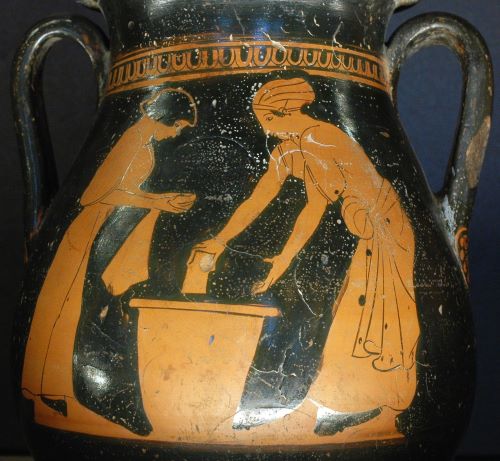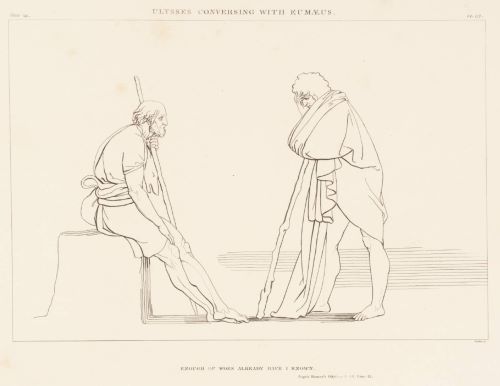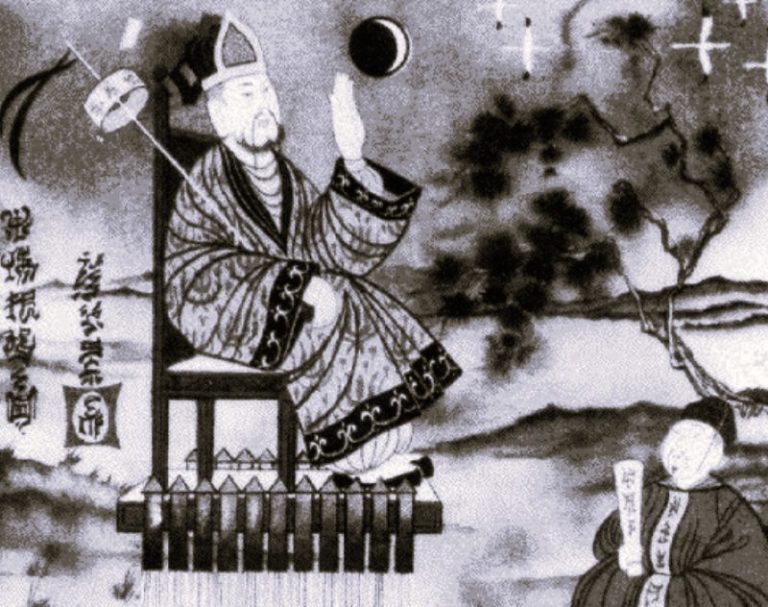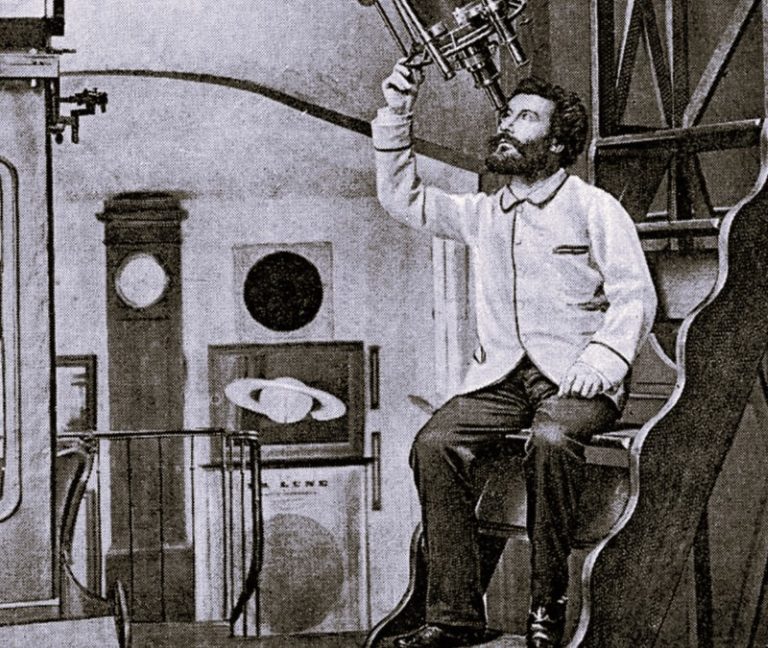

Evidence about the roles and tasks of females who were slaves, servants, or non-family members of the household.
Female Servants
In Homeric poetry, apart from family members there are other members of the household [oikos] who are described by many different Greek words, and carry out differing roles. We were interested in understanding what those words would have meant and how servitude was portrayed, in the context of ancient Greek song culture of the Iliad and Odyssey. We start our exploration with female slaves/servants.
Some were captured in war, as foreseen by Hector when he says to Andromache:
[450] But the pain I have on my mind is not as great for the Trojans and for what will happen to them in the future, 451 or for Hecuba or for Priam the king, 452 or for my brothers if, many in number and noble as they are, 453 they will fall in the dust at the hands of men who are their enemies 454 —no, [the pain I have on my mind is not as great for them] as it is for you when I think of a moment when some Achaean man, one of those men who wear khitons of bronze, [455] takes hold of you as you weep and leads you away as his prize, depriving you of your days of freedom [eleutheros] [from slavery] 456 And you would be going to Argos, where you would be weaving [huphainein] at the loom of some other woman [and no longer at your own loom at home] 457 —and you would be carrying water for her, drawing from the spring called Messēís or the one called Hypereia. 458 Again and again you will be forced to do things against your will, and the bondage [anagkē] holding you down will be harsh. 459 And someone some day will look at you as you pour out your tears and will say: [460] “Hector is the man whose wife this woman used to be. He used to be the best in battle 461 —the best of all the Trojans, those horse-tamers, back in those days when they fought to defend Ilion [= Troy].” 462 That is what someone some day will say. And just hearing it will give you a new sorrow 463 as the widow of this kind of man, the kind that is able to prevent those days of slavery [doulion hēmar].
Iliad 6.450–463, adapted from Sourcebook

In such circumstances a woman captive could be used to carry out menial tasks, but could also be used at her master’s pleasure.
Achilles slept in an inner room, and beside him [665] the daughter of Phorbas lovely Diomede, whom he had carried off from Lesbos. Patroklos lay on the other side of the room, and with him fair-waisted Iphis whom radiant Achilles had given him when he took Skyros the city of Enyeus.
Iliad 9.663–668, SourcebookMoreover let him [=Agamemnon] swear an oath before the Argives that he has never gone up into the couch of Brisēis, nor has lain down with her, even though it is right [themis] for humans, both men and women, to do this
Iliad 19.175–177, Sourcebook
It seems to be significant if a male owner did not actually sleep with a servant or captive woman:
A good old woman, Eurykleia, daughter of Ops, the son of Peisenor, went before him with a couple of blazing torches. [430] Laertes had bought her with his own wealth when she was quite young; he gave the worth of twenty oxen for her, and showed as much respect to her in his household as he did to his own wedded wife, but he did not take her to his bed for he feared his wife’s resentment. She it was who now lighted Telemachus to his room, and she loved him [435] better than any of the other women [dmōai] in the house did, for she had nursed him when he was a baby.
Odyssey 1.428–435, adapted from Sourcebook
Eurykleia is an example of woman who was not captured in war but purchased, presumably born in servitude, although she seems to have an important role in the household. Women, whether captive or purchased, were valued for their skills and accomplishments.
Even when the masters did sleep with the women they could treat them well, and any children born to them. For example, Priam’s children by his concubines were brought up alongside those by his wife; and here Menelaos makes wedding arrangements for his son at the same time as his daughter by Helen:
For his only son he had found a bride from Sparta, daughter of Alektor. This son, Megapenthes, was born to him of a bondwoman [doulē], for the gods granted Helen no more children after she had borne Hermione, who was fair as golden Aphrodite herself.
Odyssey 4.10–14, adapted from Sourcebook
As for the household duties, apart from nursemaids like Eurykleia, we can see how the maids carry out various tasks in this idealized scenario for the Phaeacians:
There are fifty maid servants [dmōai gunaikes] in the house, some of whom are always grinding rich yellow grain at the mill, [105] while others work at the loom, or sit and spin, and their shuttles go, backwards and forwards like the fluttering of aspen leaves, while the linen is so closely woven that it will turn oil.
Odyssey 7.103–107, adapted from Sourcebook

Grinding grain would have been hard physical work: in Ithaka we see one such woman praying to Zeus because she is worn out with grinding grain for the suitors:
There were twelve miller-women [gunaikes] whose business it was to grind wheat and barley which are the staff of life. The others had ground their task and had gone to take their rest, [110] but this one had not yet finished, for she was not so strong as they were…[she prays] “…let this be the very last day that the suitors dine in the house of Odysseus. They have worn me out [= they have loosened my limbs] with the labor [kamatos] of grinding meal for them…”
Odyssey 20.107–110, 114–119, adapted from Sourcebook
But weaving and spinning are activities also carried out by the mistresses of the household, like Arete, Helen, Andromache, or Penelope, so perhaps the indoor servants are more skilled and of a higher status.

To take another example the washing is carried out by both Nausicaa and her servant girls, and they then play ball together on the beach. In the preceding passages these girls are described both as amphipoloi ‘female servants’ or amphipoloi gunaikes ‘serving women’ and as dmōai (slaves, captives):
They [=the mules] pulled without flagging, and carried not only Nausicaa and her wash of clothes, but the maids [amphipoloi] also who were with her. When they reached the water side they went to the washing-cisterns… They took the clothes out of the wagon, put them in the water, and vied with one another in treading them in the pits to get the dirt out. After they had washed them and got them quite clean, they laid them out by the sea side, where [95] the waves had raised a high beach of shingle,
Odyssey 6.83–86, 90–94, adapted from Sourcebook
The ladies of the household are always accompanied by female servants. For example, when Nausicaa is asleep “Two maid servants [amphipoloi] were sleeping near her, both very pretty, one on either side of the doorway, which was closed with well-made folding doors.” (Odyssey 6.18–19), and when Penelope appears before the suitors “she came down the lofty staircase of her palace. She came not alone, but attended by two of her handmaidens [amphipoloi]” (Odyssey 1.330–331).
Then there is the housekeeper, tamia, who looked after people or served them.
A maid servant [amphipolos] then brought him water in a beautiful golden ewer and poured it into a silver basin for him to wash his hands, and she drew a clean table beside him; an upper servant [tamia] brought him bread and offered him many good things of what there was in the house,
Odyssey 7.172–175, adapted from Sourcebook
What evidence can you find about the roles and tasks of females who are captives, slaves or servants, or non-family members of the household? How were they treated? How do their masters or mistresses speak to them or about them? Please share passages in the forum and join the discussion!
Male Servants

We start with Eumaios, whose story provides an example of how a servant was brought into a household. Born on Syra, he was the son of Ktesios, who ruled the two communities of the island:
Now to this place there came some cunning traders from Phoenicia (for the Phoenicians are great mariners) in a ship which they had freighted with trinkets of all kinds. …
Odyssey 15.415–416, Sourcebook
A servant woman led the young Eumaios from the house:
…till we reached the harbor, where the fast-running Phoenician ship was lying. [475] When they had got on board they sailed their ways over the sea, taking us with them …
Presently the winds and waves took the ship to Ithaca, where Laertes gave sundry of his chattels for me, and thus it was that ever I came to set eyes upon this country.
Odyssey 15.473–475, 482–484, Sourcebook

He was well treated as a youth in the household: he recounts how Odysseus’ mother was kind to him:
As long as she was still living, though she was always grieving, I used to like seeing her and asking her how she did, for she brought me up along with her daughter Ktimene of the light robes, the youngest of her children; [365] we were boy and girl together, and she made little difference between us. When, however, we both grew up, they sent Ktimene to Samē and received a splendid dowry for her. As for me, my mistress gave me a good khiton and cloak with a pair of sandals for my feet, [370] and sent me off into the country, but she was just as fond of me as ever.
Odyssey 15.361–370, Sourcebook
He had built his house “without saying anything to Penelope or old Laertes” (Odyssey 14.5– 14) and bought his own servant:
Mesaulios brought them their bread; [450] the swineherd [subōtēs] had bought this man on his own account from among the Taphians during his master’s [anax] absence, and had paid for him with his own wealth without saying anything either to his mistress [despoina] or old Laertes.
Odyssey 14.449–452, adapted from Sourcebook
From this we can see there was a thriving trade among the Phoenicians and Taphians: male servants seem more likely to have been taken this way than in war.
Odysseus, in the guise of a beggar, says he wishes to go to town to beg:
Then resourceful Odysseus said, “Sir, I do not want to stay here; a beggar [ptōkhos] can always do better in town than country, for anyone who likes can give him something. [20] I am too old to care about remaining here at the beck and call of a master [sēmantōr].
Odyssey 17.16–21, adapted from Sourcebook

When he meets the suitors they challenge him about his lifestyle:
So among them Eurymachus, son of Polybus, began to speak, [350] jeering at Odysseus,… Then turning to Odysseus he said, “Stranger, will you work as a servant [thēteuō], if I send you to the moor and see that you have reliable pay [misthos]? Can you build a stone fence, or plant trees? [360] I will have you fed all the year round, and will find you in shoes and clothing. Will you go, then? Not you; for you have got into bad ways, and do not want to approach work [ergon]; you had rather fill your belly by going round the district [dēmos] begging [ptōssō].
Odyssey 18.349–350, 356–363, adapted from Sourcebook
This type of work is offered to someone who they think is unskilled. Perhaps of a higher status are these:
[380] And Eumaios answered, 381 “Antinoos! Though you are noble, you do not speak properly. 382 What man who is from somewhere else himself 383 will invite yet another guest-stranger [xenos], unless he [the xenos] is one of those who are workers of the district [dēmiourgoi], 384 such as a seer [mantis], or a healer [iatēr] of illnesses, or a carpenter [tektōn] who works on wood, [385] or even an inspired singer [aiodos] who can give delight with his singing? 386 For such men are apt to be invited anywhere in the world. 387 But one would not invite a beggar [ptōkhos]; such a man would feed on his host. You are always harder on Odysseus’ servants [dmōs, pl.] than any of the other suitors are, and above all on me, but I [390] do not care so long as godlike Telemachus and circumspect Penelope are alive and here.”
Odyssey 17.380–390, adapted from Sourcebook
It seems they are not permanent members of the household but had skills that were valued.
Even gods could serve for hire.
[435] Meanwhile King Poseidon turned to Apollo saying, “Phoebus, why should we keep each other at arm’s length? it is not well, now that the others have begun fighting; it will be disgraceful to us if we return to Zeus’ bronze-floored mansion on Olympus without having fought each other; [440] therefore come on, you are the younger of the two, and I ought not to attack you, for I am older and have had more experience. Idiot, you have no sense, and forget how we two alone of all the gods fared hardly round about Ilion when we came from Zeus’ house and worked [thēteuō] for Laomedon a whole year [445] at a stated [rhētos] wage [misthos] and he gave us his orders. I built [demō] the Trojans the wall about their city, so wide and fair that it might be impregnable, while you, Phoebus, herded cattle for him in the dales of many-valleyed Ida. [450] When, however, the glad seasons [hōrai] brought round the time-limit [telos] for payment [misthos], mighty headstrong Laomedon robbed us of all our hire [misthos] and sent us off with nothing but abuse.
Iliad 21.435–452, adapted from Sourcebook
Some attendants, like heralds [kerukes] and therapontes, are only described in those terms and not with the other words for servants, slaves, or hirelings. The therapōn is a H24H Core Vocab term, glossed as “attendant, ritual substitute” and is discussed in Hour 6. Outside the situation of war, the therapōn is also shown assisting with the preparation and serving of food and drink to guests (see, for example, Iliad 205ff). And heralds also have a ceremonial role. Here is an example of the preparation for a feast:
Heralds [kerukes] and attendants [therapontes] were bustling about to wait upon them, [110] some mixing wine with water in the mixing-bowls, some cleaning down the tables with wet sponges and laying them out again, and some cutting up great quantities of meat.
Odyssey 1.109–112, adapted from Sourcebook
One thing that emerges from our initial exploration of male servitude is to ask: what is the concept of freedom? So many of these in positions of service have had a turn of fortune: they were princes, for example, but after being captured or expelled they are in the service of another household. They may be well treated, and have different functions, but they do not have the right to their own property. They might not get wages, but they are fed and sheltered. Other attendants have a ceremonial function, and could not be described as slaves. There are also men who do not have a position in a household but who, unless they are reduced to wandering or begging, can be hired for specific tasks or for a fixed period of time—they might be free to go where they please but they have no security.

But even Achilles says that he would prefer a life of servitude than death:
‘Say not a word,’ he answered, ‘in death’s favor; [490] I would rather be a paid servant [thēteuō] in a poor man’s house and be above ground than king of kings among the dead.’
Odyssey 11.488–490, adapted from Sourcebook
Please join us in discussion through the forum to share other passages, vocabulary, and examples from the Homeric epics relating to male servitude.
Glossary of Terms
- aoidos “singer, bard” Autenrieth says “For the high estimation in which the ἀοιδός was held, see Od. 8.479 ff.”
- alēmōn “wanderer, rover”
- alētēs “vagabond, beggar”
- amphipolos ‘female attendant, handmaid’ This seems to be the most common term for all kinds of women servants.
- anagkē ‘force, constraint, necessity
- boukolos “cowherd, herdsman”
- dēmiourgos “one who works for the people, a skilled workman, handicraftsman”
- demō “build, construct”
- despoina “mistress”
- ’dmōē / dmōs ‘slave taken in war, generally, slave’, although we found this word used of other female servants, such as those serving the Phaeacians and the nymphs attending Kalypsō
- dmōs “slave”
- doulē ‘female slave’; infrequent in Homeric poetry but more common in later texts
- doulion hēmar ‘day of servitude/slavery’
- eleutheros ‘free’
- ergon “work, deed”
- erithos “day-laborer, hired servant” (pl., applied to reapers)
- gunaikos ‘woman’, is sometimes used to refer to females carrying out household work, with or without one of the other terms for servant, although it is also used of other women.
- hupodmōs “under-servant, underling”
- hupodrēstēr “underworker, attendant”
- kamatos ‘toil, fatigue; effect of toil, weariness’
- kērux, kērukes “herald”
- mantis “seer, expounder of omens”
- misthos “pay, wages (for hired service)”
- ptōkhos “beggar”
- rhētos “stated, stipulated, covenanted”
- sēmantōr “one who gives the sign, commander, leader, then driver, herder, of horses, cattle”
- subōtēs “swineherd”
- tamia ‘housekeeper, housewife’
- tektōn “maker, builder, joiner, carpenter”
- therapōn, plural therapontes “attendant; ritual substitute” (H24H).
- thēteuō “to be a day-laborer, to work for hire”
Originally published by the Kosmos Society, The Center for Hellenic Studies under a Creative Commons Attribution-NonCommercial-NoDerivs 3.0 Unported license.






